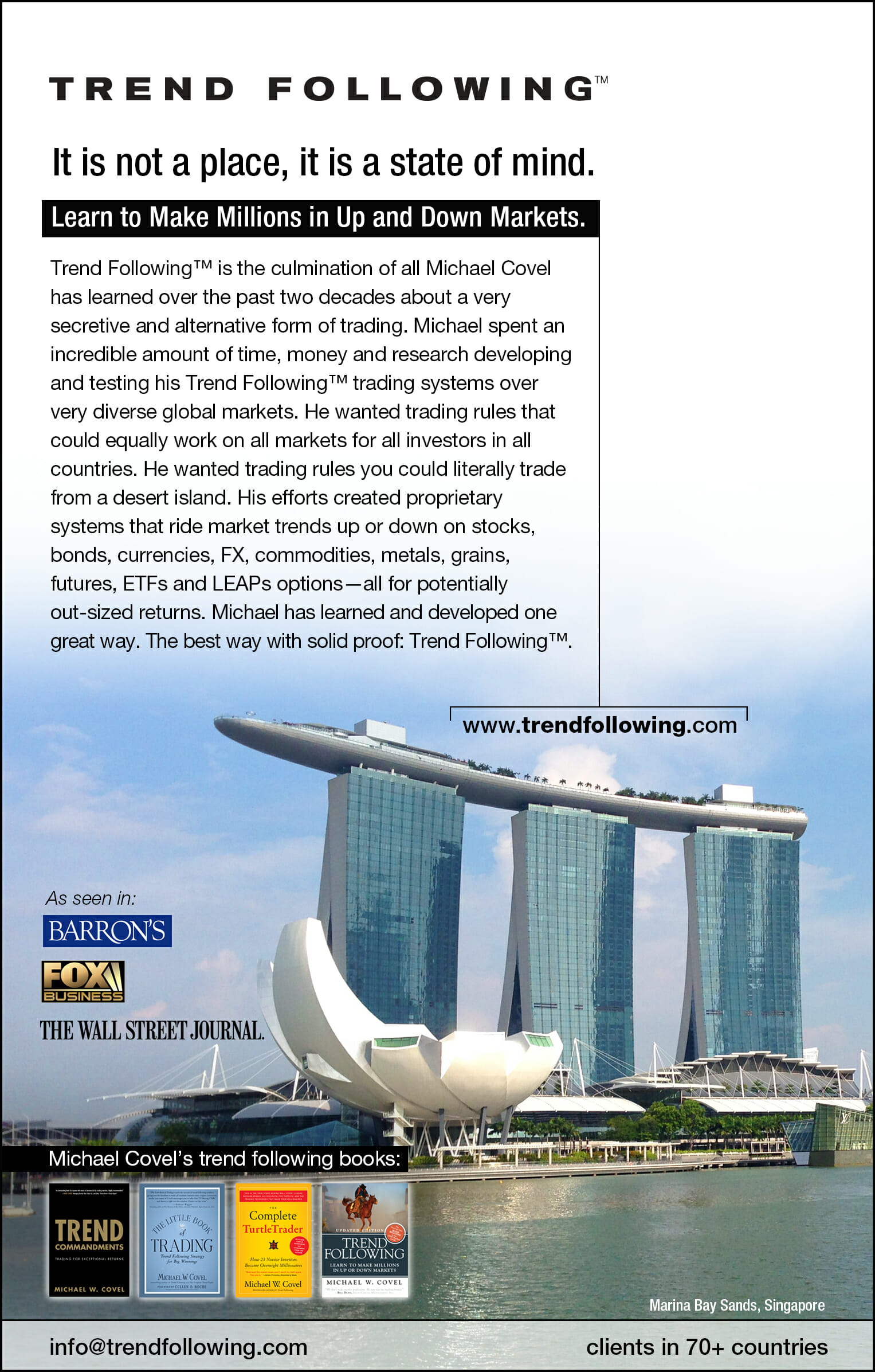The markets have long been positioned as action oriented. Do something. React to the latest news. Call your broker. Listen to an analyst. All of these activities hinge on short-term human judgements for what to do next. The quest for some type of human judgement seems to drive the majority of market players. But what does all this action do for you if your number one goal is to profit from the market?
The best traders are systematic. Their rules are written down. Once their rules are established, assuming they are based on sound trading rationale, they are followed religiously. What happens if a news story breaks? If the news is not part of the trend following system — you do nothing.
“We have a pretty strict definition of a systematic trader. They basically follow a set series of rules, established in a computer program, that tell you when to buy or sell, how many, as well as when to get out.”
Michael Garfinkle
Commodities Corp
“Many systematic traders spend the majority of their time searching for good places to initiate. It just seems to be part of human nature to focus on the most hopeful point of the trading cycle. Our research indicated that liquidations are vastly more important than initiations. If you initiate purely randomly, you do surprisingly well with a good liquidation criterion.”
Bill Eckhardt
“Well, it may sound odd for someone who has written books about trading to say this but I really don’t enjoy the process of trading. And by that I mean the actual decision making while the markets are active. Do I buy? Do I sell? Do I add to my position if its going against me? Do I get out? Do I double up? All that churning turmoil, emotional turmoil is something that I don’t particularly enjoy. What I do like is the puzzle element of it. Trying to solve the market puzzle. How can you come up with a set of rules that can so call “beat the market”? And that’s what I find fun. So I decided a while ago the best course for me was to get out of the decision making process and automate the whole procedure through system trading.”
Jack Schwager
“Systematic trading is going to be better for everyone in the long run. Our methods will work on lots of different markets. The ones that are hot today, the ones that are not hot today.”
Jerry Parker
25% Return v. 15% Return Chart
What does a systematic approach compounded over 25 years look like? Imagine the last 25 years and 2 investments of $1000 each. Investment one generated 25% for 25 years and investment two generated 15% for 25 years. Does it seem like a big difference? It is a huge difference.
- $1000 compounded at 25% for 25 years = $264,000.
- $1000 compounded at 15% for 25 years = $32,000.
- $1000 compounded at 07% for 25 years = $5,400.
Great trend following systems shoot for 25-100% returns per year.
Trend Following Products
Review trend following systems and training:

More info here.
